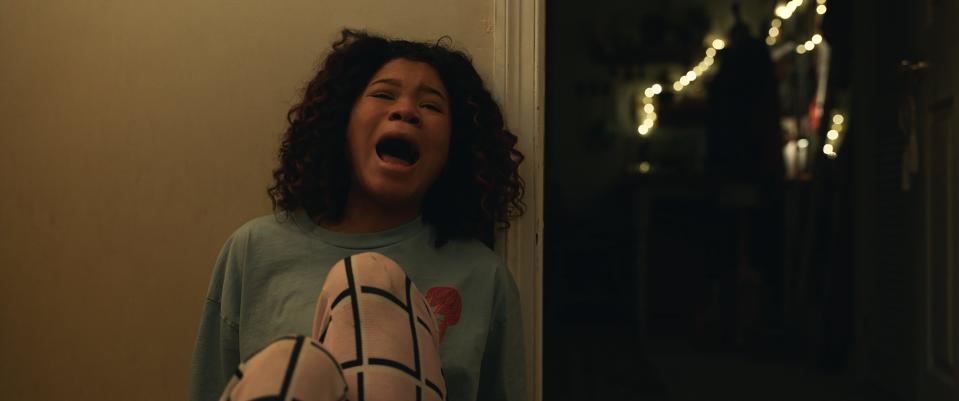Review: 'The Invisible Man' stars a classic movie monster done relevant and right
Universal's horror characters such as Dracula, Frankenstein and Wolf Man have been unearthed every so often since their heyday in the early 20th century, most recently as a failed Marvel-type shared world. A new take on “The Invisible Man,” though, indicates a fresh and relevant direction by tackling a most modern monster: the toxic and abusive male.
Writer/director Leigh Whannell (“Saw,” “Insidious”) pays slight homage to earlier versions – most notably, the original 1897 H.G. Wells novel and 1933 Claude Rains movie – but mainly goes his own way in the spookily fresh psychological thriller (★★★ out of four; rated R; available on digital platforms). Blending elements of noir, sci-fi and old-fashioned Hitchcockian suspense, this “Invisible Man” centers on a deeply disturbing narrative about abuse and gaslighting.
Scary movies: Your ultimate 2020 horror film guide, from 'Halloween Kills' to the 'Quiet Place' sequel
Fantasy Island: How the old TV show was retooled as a modern horror movie

Cecilia Kass (Elisabeth Moss) is a talented San Francisco architect whose entire life – what she does, who she speaks to, when she leaves the house – is controlled by her sociopath boyfriend Adrian (Oliver Jackson-Cohen), a famous optics pioneer and inventor. In the dead of the night, courtesy of a getaway car and her estranged sister (Harriet Dyer), Cecilia escapes – at least physically. Mentally, she’s been so manipulated by her ex that she’s in constant paranoia he’ll come after her, trading one ostensible jail for another as she seemingly imprisons herself in the house of childhood friend/cop James (Aldis Hodge) and his teenage daughter Sydney (Storm Reid).
Soon after, Cecilia receives the bombshell news that Adrian has committed suicide and he’s left $5 million to her, though it's contingent that she doesn’t commit a crime or isn't ruled mentally incompetent. Naturally, that’s when things go haywire: Already skeptical that Adrian would actually kill himself, Cecilia feels like she’s being constantly threatened by her old beau, insisting he’s become a mysterious unseen force. Those closest to her worry about her sanity but are also forced into harm's way.

Special effects are used in the film’s action sequences, which don't work quite as well as the scenes of Cecilia's paralyzing paranoia. For those, Whannell uses sound design and practical filmmaking to outstanding effect in maintaining a constantly tense atmosphere. Wide shots and panning cameras keep viewers on edge as they wonder where an invisible dude might be, but the filmmaker knows the right moments to spring a jump scare. (One, in particular, is simply magnificent in its execution.)
Moss, however, is the key to making all the scary-movie filmmaking work. A veteran of ridiculously intense roles (“Her Smell,” TV’s “The Handmaid’s Tale”), she is terrific crafting Cecilia’s arc as her character shifts from an increasingly unstable mental state to a primal need to fight back.
The horror genre is in an era where films and filmmakers are tackling timely issues and themes in high-quality, nerve-fraying fashion (see: "Us," "Get Out," "Midsommar"), though fans still adore the Universal monsters who bit, growled and lurched their way into hearts and minds during the golden age of Hollywood.
“The Invisible Man” is both a jumpstart and a template for their renaissance: The movie delves into the sheer terror of abuse and explores how Cecilia doesn’t even really understand the psychological scars until she begins to discover some semblance of freedom. The title could also be viewed as a metaphor for all the dangers not readily identifiable or in front of us – Whannell leaves much up to interpretation, not just narrative threads.
In other words, it’s an “Invisible Man” much more than a maniacal guy in gauze, for the better.
This article originally appeared on USA TODAY: 'The Invisible Man' review: Elisabeth Moss takes on modernized monster
